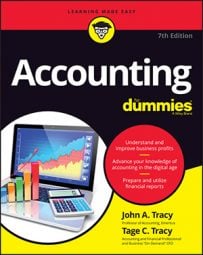Planning reasons for budgeting
Budgeting is optional for most businesses; the business is not required to do any budgeting. In contrast, the operating policies of not-for-profit entities typically require that formal budgeting be used. Full-scale budgeting is used by many, maybe most large business organizations. Budgeting by small businesses is typically more limited in scope.In fact, very small businesses may do no budgeting at all. In the start-up phase of a new business, preparing budgets is usually indispensable for raising capital and getting the venture off the ground and up and running.
Budgeting, in the broader management context, is a useful technique for keeping the business on course toward achieving its goals. Budgeting is helpful, to be sure, but it isn’t a panacea. To be frank, budgeting is not a make-or-break factor in the success and sustainability of a business.
Budgeting can be compared to another control tool of management: internal auditing. Both have their uses and costs — and both can end up being “entrenched” and done for their own sake, instead of making a net positive contribution to the performance of the business.One purpose of budgeting is to force managers to create a definite and detailed financial plan for the coming period. To construct a budget, managers have to establish explicit financial objectives for the coming year and identify exactly what has to be done to accomplish these financial objectives. Budgeted financial statements and their supporting schedules provide clear destination points — the financial flight plan for a business.
The process of putting together a budget directs attention to the specific things that managers must do to achieve their profit objectives and optimize assets and capital. Basically, budgets push managers to answer the question “How are you going to get there from here?”
Budgeting can also yield other important planning-related benefits:
- Budgeting prompts a business to articulate its vision, strategy, and goals. A business needs a clearly stated strategy guided by an overarching vision, and it should have definite and explicit goals. It isn’t enough for business managers to have strategies and goals only in their heads. Developing budgeted financial statements forces managers to be explicit and definite about the objectives of the business as well as to formulate realistic plans for achieving the business objectives.
- Budgeting imposes discipline and deadlines on the planning process. Busy managers have trouble finding enough time for lunch, let alone planning for the upcoming financial period. Budgeting pushes managers to set aside time to prepare a detailed plan that serves as a road map for the business. Good planning results in a concrete course of action that specifies how a company plans to achieve its financial objectives.
Control reasons for budgeting
Many people have the mistaken notion that the purpose of budgeting is to rein in managers and employees, who otherwise would spend money like drunken sailors on shore leave. But budgeting shouldn’t put the business’s managers in a financial straitjacket. Tying the hands of managers isn’t the purpose of budgeting.That said, it’s true that a budget serves a management control function. Management control, first and foremost, means achieving the financial goals and objectives of the business, which requires comparing actual performance against some sort of benchmarks and holding individual managers responsible for keeping the business on schedule in reaching its financial objectives.
By using budget targets as benchmarks against which actual performance is compared, managers can closely monitor progress toward (or deviations from) the budget goals and timetable. You use a budget plan like a navigation chart to keep your business on course. Significant variations from the budget raise red flags, in which case you can determine that performance is off-course or that the budget needs to be revised because of unexpected developments.
For management control, a budgeted profit report is divided into months or quarters for the coming year. The budgeted balance sheet and budgeted cash flow statement may also be put on a monthly or quarterly basis. The business shouldn’t wait too long to compare budgeted sales revenue and expenses against actual performance (or to compare actual cash flows and asset levels against the budget). Managers need to take prompt action when problems arise, such as a divergence between budgeted expenses and actual expenses.
Profit is the main thing to pay attention to, but accounts receivable and inventory can also get out of control (become too high relative to actual sales revenue and cost of goods sold expense), causing cash flow problems. A business can’t afford to ignore its balance sheet and cash flow numbers until the end of the year.
